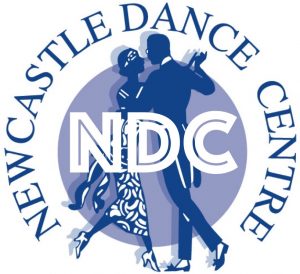- 0191 273 9987
- 36-38 Grainger Park Road, Newcastle upon Tyne, NE4 8RY

Menu

At Newcastle Dance Centre we are constantly evaluating what we do, as well as preparing pupils for the next stage in their dance and performance training. This is part of our pledge to you and our ethos at NDC.
Assessments or Exams are for all ages, and should not be looked upon as pressure for pupils, but more as something to strive to attain and work for in class. They are not compulsory, but we do encourage pupils to enter.
We have recently overhauled our exam offering and are now following UKA (United Kingdom Alliance) examinations in all subjects and IDTA (International Dance Teachers Association) in a selection of styles.
Our youngest pupils (Aged 3-5 years) can enter fun informal ‘Teddy’ assessments which are lead by the teacher in front of the ‘examiner’ and are a lovely stress-free way of introducing children to assessment. They also love collecting the new Teddy Balloon Awards.
From Year 1, pupils have the opportunity to enter slightly more formal exams in all subjects. Again, this is a gentle introduction to assessment, but a great way of achieving goals and monitoring improvement.
In addition to the regular exams, our older pupils will have the opportunity to take Regulated Grade Exams.
Regulated Grades are ratified by Ofqual, which when awarded achieve UCAS tariff points. Pupils can combine points awarded from their higher dance exams with other qualifications to meet course or higher education requirements.
When choosing an examination system it must meet our strict criteria:
Our team has been working hard to finalize a new and exciting programme of dance and assessment, which pupils can work through from day one with us. This doesn’t mean more exams, it means quality and a clear structure of assessment.
FAQs:
No. Exams have never been compulsory at Newcastle Dance Centre, but we do recommend that pupils enter exams for their continuous assessment and sense of achievement.
A regulated grade/exam is an assessment which is recognised and ratified by Ofqual (Office of Qualifications and Examinations Regulation) This is a non-ministerial government department that regulates qualifications, exams and tests in England.
We expect to offer Regulated exams from 13-14 years old. The level will be determined by their ability, but we presume it will be from our senior level onwards.
Yes. The pupils are assessed by an external examiner at our studio in the same way as previous terms. The Regulated Graded exams have a specialist team of examiners who are trained to follow a national framework of assessment, and they attend NDC when needed.
The Regulated Grades do incur an slight additional expense due to the nature and formality of the assessment. All costs would be communicated well in advance of any exam sessions.
Please follow the links to both HERE – UKA IDTA
Get in touch to discuss any classes you may wish to attend
Members Of:
SITE BY SOCIAL TRADERS
Necessary cookies are absolutely essential for the website to function properly. This category only includes cookies that ensures basic functionalities and security features of the website. These cookies do not store any personal information.
Any cookies that may not be particularly necessary for the website to function and is used specifically to collect user personal data via analytics, ads, other embedded contents are termed as non-necessary cookies. It is mandatory to procure user consent prior to running these cookies on your website.